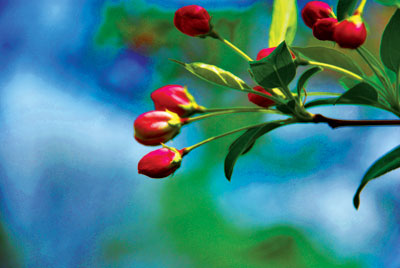All Nonfiction
- Bullying
- Books
- Academic
- Author Interviews
- Celebrity interviews
- College Articles
- College Essays
- Educator of the Year
- Heroes
- Interviews
- Memoir
- Personal Experience
- Sports
- Travel & Culture
All Opinions
- Bullying
- Current Events / Politics
- Discrimination
- Drugs / Alcohol / Smoking
- Entertainment / Celebrities
- Environment
- Love / Relationships
- Movies / Music / TV
- Pop Culture / Trends
- School / College
- Social Issues / Civics
- Spirituality / Religion
- Sports / Hobbies
All Hot Topics
- Bullying
- Community Service
- Environment
- Health
- Letters to the Editor
- Pride & Prejudice
- What Matters
- Back
Summer Guide
- Program Links
- Program Reviews
- Back
College Guide
- College Links
- College Reviews
- College Essays
- College Articles
- Back
Basel: A Sensory Tour MAG
Basel, Switzerland, is a metropolis. It’s small – in no way can it be compared to Zurich, let alone New York. Still, it thrills like a city ten times its size.
People buzz about in psychotic tremor, though there is not much ground to cover. There is no particular need to rush, yet no one can calm their nerves. There is laughter and conversation from varying masses as they pass by. From the bus station come the shrieks of Basel’s “crazy” woman. Her long black braids swing in a flurry of color as she dances flamenco to the wisps of a street cleaner’s broom. She declares the victory of the town’s soccer team, “FCB! FCB! Never defeated!”
Crowds slow to watch her, but just for a second. Take it in and keep on moving. There is shopping to be done. There are new Sony Eriksson cell phones and the coolest H&M threads to be bought. These advertisements shout at the vulnerable consumer: “Be cool. Be fashionable.” Delicate mannequins do wordless persuading in each display.
Everyone seems to be in constant motion. You gaze at the ground, leaning against a building. Some feet stomp, some dance, some drag, some skip, some tap, some pound, and some scuttle by so fast that a pattern cannot be detected. Shoes mildly differ – a dark shade of brown, then two blacks, then brown, then a dingy white. There are shiny business blacks and school begrimed colors that barely touch the ground with their rapid tempos. If your ears were to focus on just the sounds of feet, an alluring sequence would be discovered. It is irregular at times but always comes into tune with the chattering and sweeping and other calamitous noises.
Most interesting are the pitter-patters of children. Their little hands struggle to clutch their mothers’ and fathers’ fingers as they teeter-totter down the sidewalk, having their own effect in the street song. Amid the drab grays, browns, and blacks of the adult population, the babies splash oranges, pinks, and blues. The contrast makes you notice your own clothes. You begin to wonder when your pinks will become grays and your purples will cease to exist.
All the electricity is enough to wear someone out. You take a place on the city’s skirt. A hand-carved bench allows you to rest and realign. You purposely divide yourself; your right side is dressed in the buildings’ shadows and your left bathes in sun. Glancing at the source of warmth, you may take in the fluid river. The water is majestic. The sun’s treasures are hidden within. A sparkle known only to jewels is produced as blue-green ripples catch your eye on the surface.
After a few minutes, the hum of human eccentricity is interrupted. Gleaming silver tracks that stretch perpendicular to the river’s flow, deep into the city’s abyss, begin their whining, vibrating warning. Every seven minutes the foragers return. They come in several shades of green, lime to emerald to forest. They cut through tangles of people, whistles blaring, like staffs to the Red Sea. They perform this task with ease before coming to a halt and opening their doors for the import and export of bodies. The trains take people from city ports and hot spots to their suburban and country front porches. They are man’s best friends and worst enemies. An oblivious youth, thin white cords coiling from head to pocket, stands in the tracks. Only those who don’t value life would dare to tango with a tram. Becoming its obstacle is to dance with death.
Of course, the trams offer a way out of Basel’s intoxicating sounds and smells. However, few desire to abandon their addiction. Heavy scents pop the realms that your eyes are accustomed to. Delicious meats, lamb, duck, and chicken sautéed, smothered, shredded, covered in whatever savory sauce you can imagine. The wafting temptation beckons to the unsuspecting stomach. Delicacies and river water – the smell makes your nose quiver. Mounds of sugar leave the desserts and join the air’s moisture in heavenly evaporation. Couple this with the aroma of fresh-baked bread, the best in the country. However delectable each item is on its own, the harsh collision of scents can make even the strongest stomach nauseous.
Your eyes, your stomach, search for relief. Your head falls back against the bench. You find refuge in the caressing blue of the sky. It’s like nothing you’ve seen before. Soothing yet intense, the azure blanket suffocates land as far as the eye can see, with one exception. The sun is a glowing hole in the patchwork. Almost as if it were the source of a leak, the clouds scatter about it and distance cobalts from sapphires. The theatrical works above your whirling head are not complex, and finally you can relax. Your eyes begin to slip and soon your purring breaths are just another rhythm in the song of Basel.

Similar Articles
JOIN THE DISCUSSION
This article has 3 comments.

3 articles 0 photos 15 comments